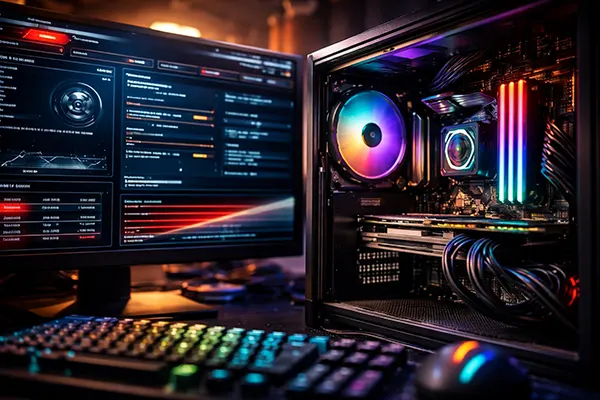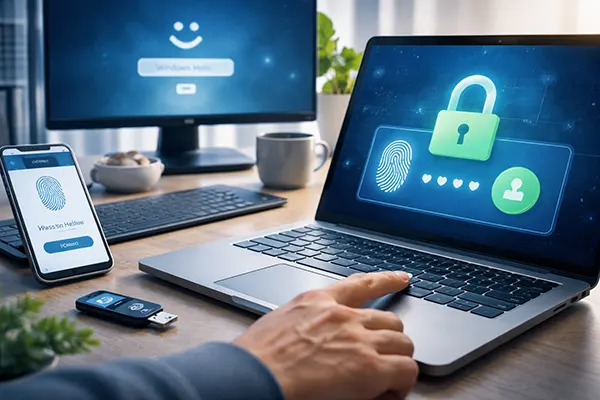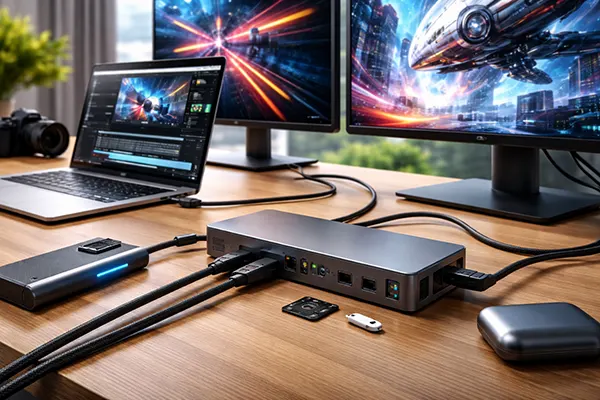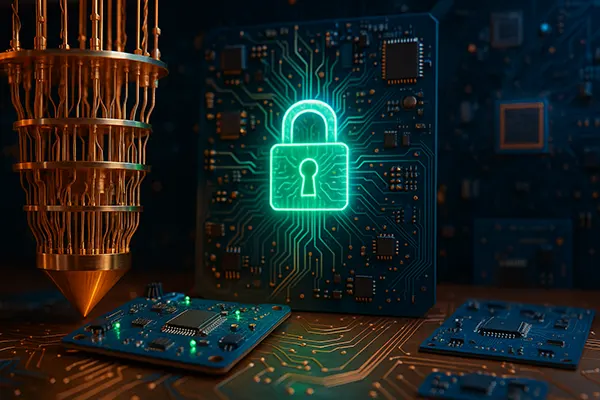
Quantum AI: How Quantum Computing Is Reshaping Digital Security in 2025
As quantum computing progresses from theory to application, its impact on global digital security systems is no longer hypothetical. By February 2025, organisations and governments are racing to adapt existing cryptographic standards to withstand this computational revolution. Quantum Artificial Intelligence (Quantum AI) merges the unparalleled processing capabilities of quantum machines with the adaptability of AI, creating a new landscape where cybersecurity is both threatened and fortified by the same technology.
Quantum Threats to Traditional Encryption
One of the most pressing concerns about quantum computing in 2025 is its potential to break widely used public key encryption protocols, including RSA, ECC, and DSA. These algorithms rely on the difficulty of certain mathematical problems, such as prime factorisation and discrete logarithms, which quantum computers can solve exponentially faster using algorithms like Shor’s algorithm.
Governments and enterprises are already reacting by investing in quantum-resistant algorithms. The U.S. National Institute of Standards and Technology (NIST) is finalising its selection of post-quantum cryptography standards, aiming to phase in new encryption methods that can withstand quantum attacks.
Meanwhile, the looming threat has accelerated the development of hybrid security systems. These combine classical and quantum-resistant techniques, providing short-term mitigation while preparing for a post-quantum future.
Immediate Implications for Digital Infrastructure
As of 2025, banks, healthcare systems, and national defence agencies are among the most urgent adopters of quantum-secure communication protocols. Data transmitted today may be stored by malicious actors and decrypted later with quantum computers, making proactive adoption vital.
Quantum key distribution (QKD) is gaining traction for securing communications using principles of quantum mechanics, like the no-cloning theorem and observer effect. Commercial QKD networks are operational in parts of Asia and Europe, with broader deployment underway.
AI plays a pivotal role here, optimising QKD routing and identifying vulnerabilities in hybrid cryptographic systems through pattern analysis and anomaly detection, thus accelerating secure integration.
Quantum AI as a Cybersecurity Tool
Quantum AI is not just a threat—it’s a powerful defensive ally. In 2025, researchers are leveraging quantum-enhanced machine learning to detect cyberattacks with unprecedented speed and accuracy. Algorithms trained on quantum data sets can process complex network patterns in real time, identifying anomalies that classical AI might miss.
This capability is crucial in protecting critical infrastructure. Power grids, financial exchanges, and medical systems require real-time responses to cyber threats. Quantum AI enables proactive threat identification rather than reactive containment.
Furthermore, reinforcement learning in quantum environments allows AI models to adapt dynamically to evolving threat landscapes. These models simulate attacker strategies to predict potential breaches, then adjust defence protocols accordingly.
Automated Protocol Auditing and Forecasting
Another revolutionary application of Quantum AI is in smart auditing of encryption protocols. AI agents enhanced by quantum capabilities are employed by major cybersecurity firms to continuously test and validate encryption robustness.
This automation significantly reduces the time and cost of security audits. Systems once requiring weeks to assess are now scanned and reported on in minutes. AI also forecasts potential weak points by simulating post-quantum attack vectors.
These models help security professionals pre-emptively update policies, establish quantum-secure infrastructure, and coordinate rapid incident response across global networks.
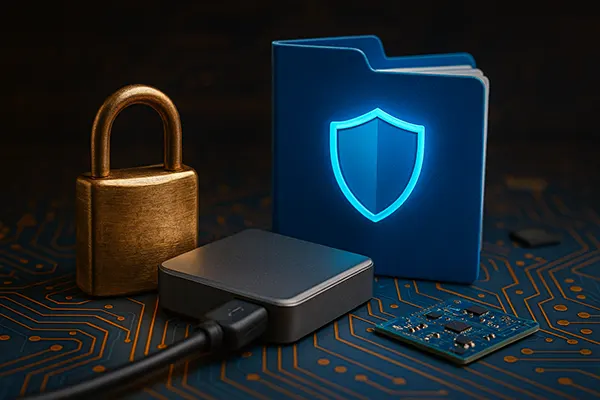
Policy and Industry Adaptation in 2025
The rise of Quantum AI has forced policymakers to rethink regulations governing data protection and privacy. As of February 2025, the European Union and several countries in Asia have introduced legislative frameworks mandating the transition to quantum-resilient security standards.
Global tech companies are forming alliances to share quantum readiness benchmarks and accelerate standardised adoption. Collaborative efforts such as the Global Quantum Security Alliance (GQSA) aim to establish best practices and promote transparent information exchange.
However, the transition is not uniform. Small businesses and developing countries face challenges in upgrading their digital systems due to financial and technical constraints, risking increased vulnerability to quantum-enabled cybercrime.
The Role of Education and Workforce Upskilling
To meet the demands of quantum-secure transformation, educational institutions are revising curricula to incorporate quantum computing and cryptographic defence. Universities are launching dedicated programmes for quantum cybersecurity engineering.
Workforce development is also critical. In 2025, governments and corporations are funding training initiatives aimed at upskilling IT professionals in quantum algorithms, secure implementation, and AI-enhanced defence tools.
These investments ensure not only technological preparedness but also human readiness. Building a new generation of quantum-literate cybersecurity experts is essential for maintaining long-term digital resilience.

